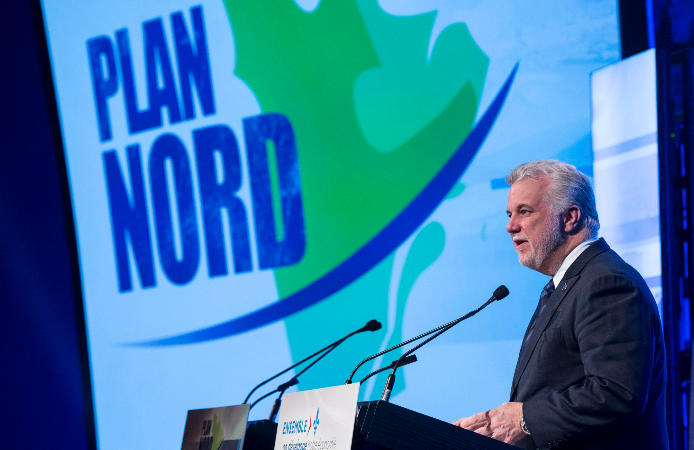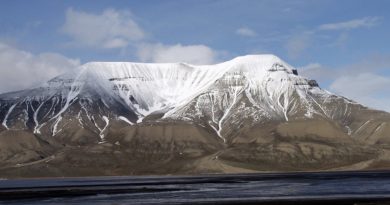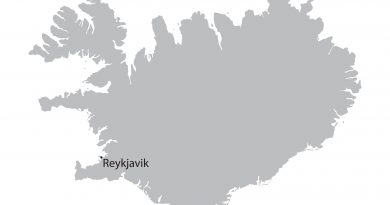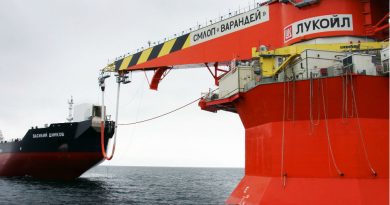Canadian province of Quebec announces plan for northern development

The Canadian province of Quebec announced an ambitious plan to develop its northern region on Wednesday, putting the Arctic back in the province’s political spotlight.
Details of the project, titled Plan Nord, were unveiled in Montreal by Quebec premier Philippe Couillard and several cabinet ministers.
“It’s goal is to promote the natural resources, energy, culture and tourism in Quebec above the 49th parallel,” Couillard said. “We want to create jobs and prosperity for northern communities and Quebecers while respecting both the people of the North and the environment.”
Billions of dollars expected in investment
Listen: CBC news interviews Pierre Arcand, Quebec’s minister of energy and natural resources, about the importance of Plan Nord despite this period of rocky energy prices:
Mining activities will be among the priorities over the first phase of the project from 2015-2020.
With 17 mining projects in the works, the government suggests that in the advanced phases, these projects could generate $22-billion dollars in investments, create 10,0000 jobs during the construction phase,and support 9,730 jobs a year during the following production phase.
Other priorities outlined in the Plan include developing the forestry and energy sectors and developing northern tourism.
Education, including vocational training, is also being made a priority so indigenous communities can better participate in the economic opportunities created by Plan Nord.
Project’s second wind
(Video promoting first version of Plan Nord. The new version of the plan released this week is less ambitious, but is still touting big investment opportunities in the province of Quebec.)
This is the second attempt at launching a Plan Nord.
Former Quebec Liberal premier Jean Charest conceived the first incarnation and made it a cornerstone policy of his government. When his government was defeated by the Parti Quebecois in 2012, the incoming government scrapped the plan, taking Arctic development in the province off the front burner.
The Liberal Party led by Philippe Couillard was elected in 2014.
Related stories from around the North:
Canada: Arctic mining – unexpected social negatives for Inuit women, Radio Canada International
Finland: Does Nordea’s divesting of coal shares signal shift in Nordic market?, Yle News
Norway: Production uncertain beyond Q2 at iron-ore mine in Arctic Norway, Barents Observer
Sweden: Bids given for Pajala mine in Arctic Sweden, Barents Observer
United States: Alaska – Judge temporarily halts EPA process on Pebble Mine, Alaska Dispatch



